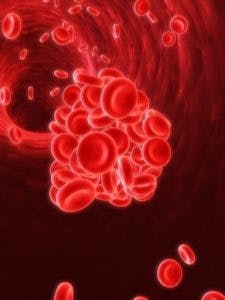What Is the Link between Obesity and Cancer?

Over the years, obesity has been connected with an increased risk of many life-threatening diseases, including cancer. Fortunately, the sort of massive weight loss made possible through bariatric surgery and a subsequent commitment to a healthy lifestyle can significantly reduce cancer risks. Fully understanding the consequences of obesity will help you weigh the risks of surgery against the risks of remaining obese.
Numerous studies have shown the link between obesity and the following types of cancer:
- Pancreatic
- Esophageal
- Colonic and rectal
- Breast (after menopause)
- Kidney
- Endometrial
- Thyroid
- Gallbladder
 Definitive evidence pointing to links between obesity and cancers of the prostate, ovaries, and liver is not yet available; however, ongoing studies currently investigate the possibility of such links.
Definitive evidence pointing to links between obesity and cancers of the prostate, ovaries, and liver is not yet available; however, ongoing studies currently investigate the possibility of such links.
As to why there is a link between obesity and cancer, the National Cancer Institute acknowledges the following theories as being plausible in the scientific community:
- Insulin and insulin-like growth factor-1 (IGF-1) are often found in higher levels in the blood of obese people. This can contribute to the development of certain tumors.
- Obese people have excess fat tissue, which can lead to higher levels of estrogen in the body. This, in turn, can lead to increased risk of breast, endometrial, and certain other cancers.
- Fat cells produce adipokines, hormones that may stimulate or stifle cell development. Obese people tend to have higher levels of leptin, for instance, which encourages the development of cells, while they tend to have lower levels of adiponectin, which has the opposite effect.
- Obese people commonly have chronic low-level inflammation, which can increase the risk of cancer.
- Obese people often have impaired immune responses.
How Excessive Fat Affects the Body
One of the strongest links is the production of estrogen in obese individuals, including men. In pre-menopausal women, the ovaries are the main producers of estrogen. However, fat cells can also produce estrogen and are most likely the main cause of post-menopausal breast and uterine cancer among others.
Excessive numbers of fat cells also play havoc with your metabolic processes. Fat cells sent out chemical signals that upset the flow of information between cells and organs. Insulin is one hormone whose processes can be upset by fat. Obese individuals have excessive amounts of free fatty acids in the blood, leaving cells increasingly resistant to the effects of insulin and unable to take up glucose properly. Studies are ongoing as to how this process affects the incidence of cancer.
Experts also believe that excessive amounts of visceral fat, the kind that surrounds many of your body organs, leads to chronic inflammation, which in turn sends a signal to cells to divide, which in normal circumstances triggers a healing process. This effect could play into the cancer process whereby cells divide uncontrollably.
People who have dealt with dramatic fluctuations in their weight, especially in adulthood, are also at greater risk for cancer than those who have not, so continuing the up-and-down dieting yoyo is not in your best interest.
Bariatric surgery alone will not reduce a person’s risk for cancer. You must be willing to commit to healthy post-surgical lifestyles, including limited portions of healthy foods and regular exercise regimens.
Learn More about Obesity and Cancer
To learn more about contact Tijuana Bariatric Center today to schedule a consultation with Dr. Garcia.

